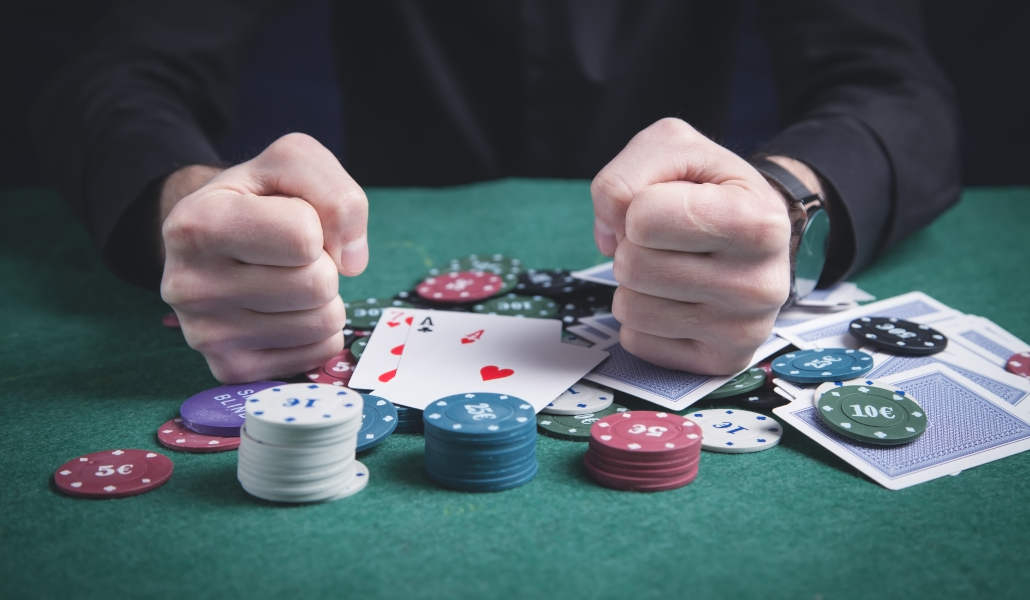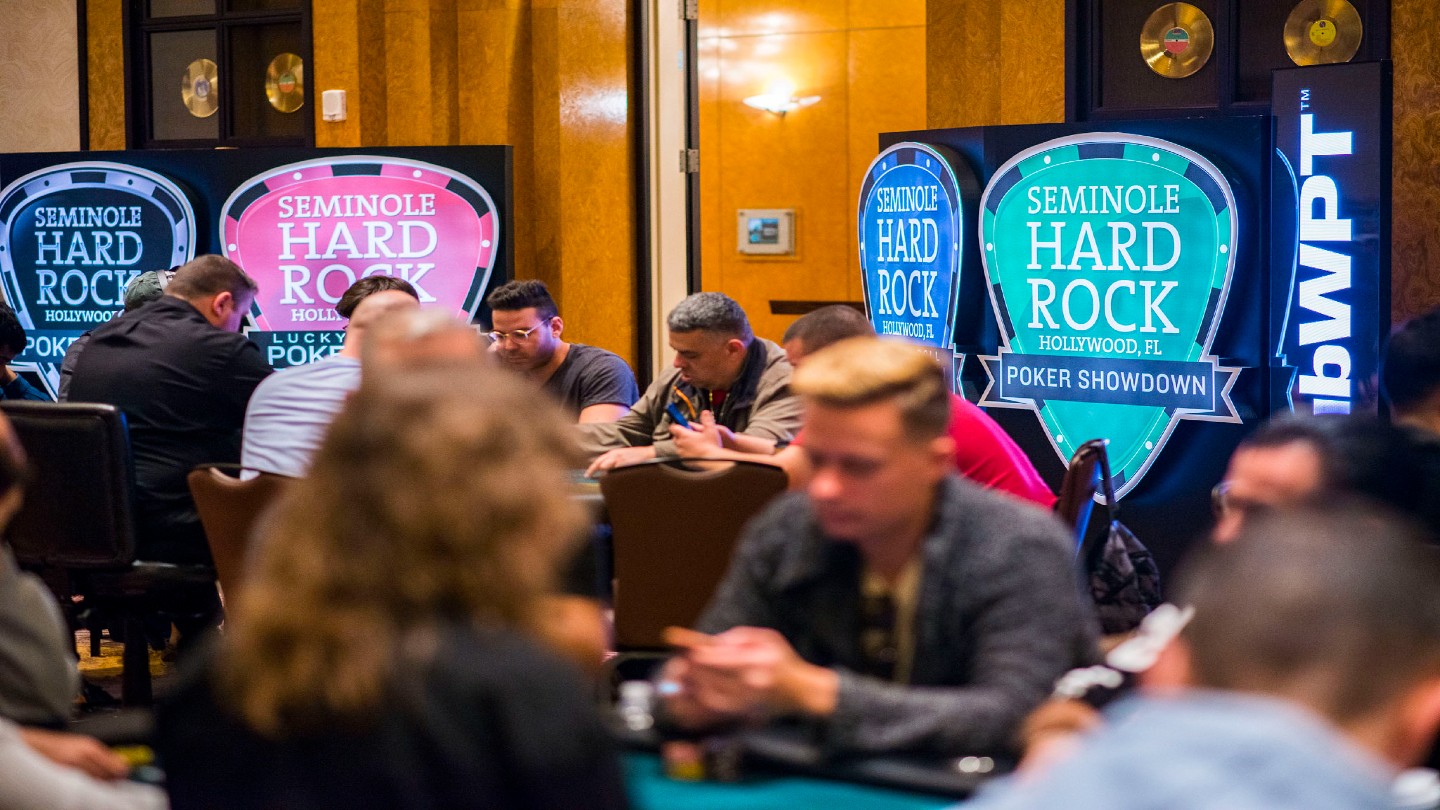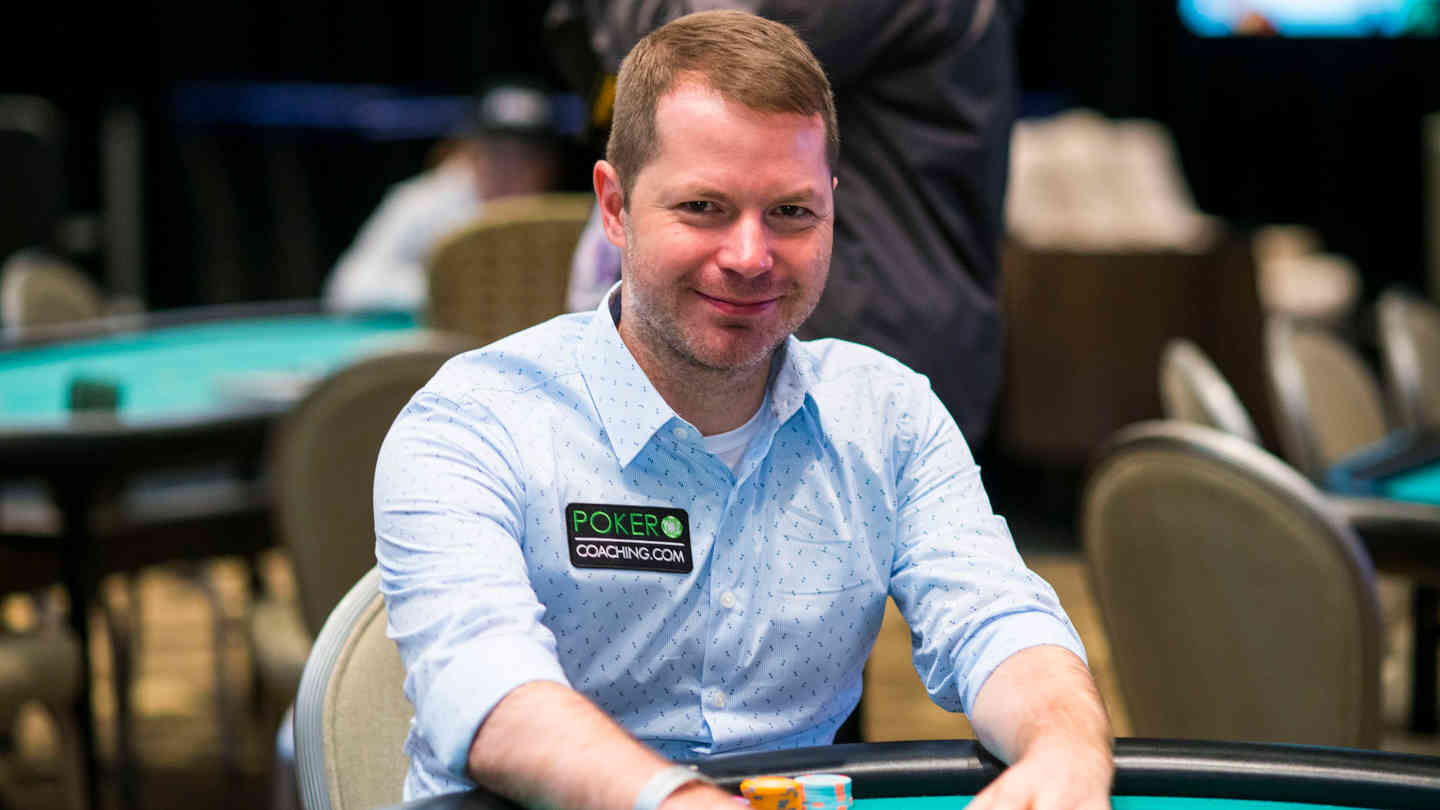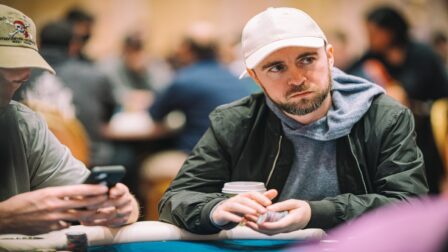How to Move On from a Bad Beat in Poker

5 minutes
Last Updated: January 26, 2023
No poker player can claim to have never taken a bad beat. Whether we're seasoned pros or just starting, nobody is exempt from the misfortune of getting our hopes dashed by what can often seem like an unlucky turn of events.
But while it's natural to feel frustrated in such situations, you must know how to move on so you don't become lost in negative emotions and prevent yourself from playing your best game.
In this blog post, we'll discuss some strategies for recognizing when it's time to take a break and reset after a bad beat and explain how maintaining the right attitude through recovery is crucial for success and mental clarity.
So if you're feeling discouraged after bad luck at the poker table, read further for tips on handling these challenging scenarios!
Recognizing When It's Time to Take a Break
It can be difficult to recognize when it is time to take a break from any activity, but this decision is especially important for recreational or professional poker players.
More often than not, bad beats in poker happen at some point, leaving many players frustrated and less-than-enthused about continuing the pursuit.
For example, suppose you have been playing at BetMGM Casino Michigan for an extended time and are rapidly growing upset or anxious about the game. In that case, it may be best to step away – even temporarily – and regroup.
Taking a break can help prevent further losses due to interference with clear thinking and decision-making. It can also serve as a reminder that while poker involves some luck, good strategies are what will ultimately bring more successful outcomes in the long run.
Identifying Negative Emotions & Refocusing Your Mind
Experiencing a bad beat in poker can lead to an immediate emotional response, with negative feelings like anger and frustration coming to the forefront. When this happens, it can be not easy to move on and continue playing successfully.

It is important to acknowledge these negative emotions and permit yourself to feel them fully before seeking ways to refocus your mind.
This might involve taking a few deep breaths, going for a walk, or listening to calming music, all of which can help you return your mindset towards playing with focus and an open mind, allowing you to regain the confidence needed to take on the next hand.
Developing Healthy Habits for Mental Clarity
Playing poker requires skill and discipline, but even the best players can experience a bad beat. When this happens, it's important to remember that defeat is part of the game and find ways to move on with mental clarity.
Developing healthy habits for managing discouragement is key for any successful poker player. By recognizing patterns in your losses, you can identify weaknesses in your strategy and start making mindful adjustments.
Staying present at the moment and not dwelling on past mistakes will help shift your focus from negative thoughts towards finding solutions in subsequent poker hands.
Additionally, using deep breathing exercises to stay calm and relax can help regulate emotion before playing with another hand.
Healthy habits like these create an environment conducive to developing great mental clarity, enabling more effective decision-making during games.
Strategies for Recovering After a Bad Beat
The most effective approach is taking a step back, objectively assessing the situation, and analyzing your mistakes.
You mustn't let sadness or anger cloud your judgment, as this will only lead to further losses and lessen your focus on the current game.
Instead, reflection and identifying areas of improvement should be the primary goals when it comes to recouping after a bad beat.
Furthermore, remembering why you started playing poker first helps players stay motivated and track their long-term gaming goals.
Finally, allowing yourself some time off also proves to help you recover from a tough loss; learning to separate yourself from negative emotions goes a long way.
Maintaining the Right Attitude Through Recovery
A good frame of mind can help you bounce back and move on to win the next hand. It's essential to minimize emotion, overthink your opponent's move, or put the blame on yourself when suffering a bad beat.
Instead, don't dwell on it; accept it has happened and learn from mistakes that were made if possible.
Evaluate what went wrong if possible, take a step back from playing for some time and come back stronger.
Staying positive throughout recovery is key for succeeding in future hands; being focused helps you stay alert to changing conditions, such as bet size or behavior, which may indicate strength or weakness in an opponent's hand.
Learning from Mistakes and Moving On Quickly
Learning from mistakes and moving on quickly is an important skill for any poker player, as a bad beat can be emotionally devastating. The first step to moving on from a bad beat is to take a deep breath and accept that it's just part of the game.
Then, after gaining some perspective, it's beneficial for players to go back over their decision-making process during the hand and assess what went wrong and what could have been done differently.

This analysis promotes understanding of your game and helps prevent similar mistakes in future rounds of play.
Additionally, focusing on the hands, you did win instead of focusing on one lost hand is a great way to get back in the groove.
Finally, taking a break from playing and doing something different such as reading poker strategy books or talking with other poker enthusiasts, can help clear the head and create space for new focus during upcoming games.
Taking Breaks to Avoid Tilt-Inducing Situations
Poker is a game of skill, and making consistent money requires players to stay level-headed. Taking breaks between games or after losing hands can be beneficial in avoiding tilt-inducing situations.
Tilt is an emotional state where a player starts making bad decisions due to their feelings rather than the logic of their play.
Taking breaks allows one to cool off and regain composure, enabling them to come back with a clear head and a renewed focus on their play.
Additionally, the break can be used for reflection – it is a great opportunity to assess one's play and determine what went wrong or which strategies are working well.




















